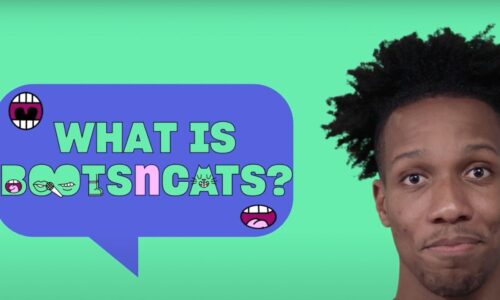| [iframe id=”http://player.theplatform.com/p/2E2eJC/nbcNewsOffsite?guid=a_showme_textbooks_150731″] |
The University of Maryland University College (UMUC) wants to save some money. So how are they going to accomplish their fiscal goals?
By getting rid of books!
That’s right. UMUC is eliminating textbooks for their 84,000 students. The university plans to use online materials to teach the students on campus.
To be fair, most of UMUC’s students have had some college experience, be it from job training, previous college courses or a partial education received from the material.
UMUC is one of the forerunners in the world of higher learning to take such a drastic action as ditching textbooks. But check this out. College textbook prices have risen over 1,041% since 1977.
Students have turned to online sites to buy books, or to rent them from companies like Chegg and TextbookRush. But most learning institutions around the world are still using good old books. And it is a profitable business too.
CollegeHipHop.com wanted to show you how to save money this year, so we linked up with a rapper, who has experience in flipping books on college campuses.
HOW TO MAXIMIZE YOUR MONEY WHILE SELLING YOUR BOOKS BACK
 |
| By: Marcus “Marchitect” Watkins Marchitect is the CEO of Yaheard.com, and a member of the chart-topping rap group The 49ers. He broadcasts Yaheard Radio from The University of Delaware. |
Before I topped the iTunes charts, and prior to my Yaheard.com FM radio show, I was submerged in the $14 billion industry that is known as College textbooks.
I started out at an off-campus bookstore at the University of Delaware stocking the shelves, and ringing up college students who constantly complained about the costs of their required texts.
Later I would discover an unknown talent for conducting “Buybacks.” It is the process of buying college textbooks based off the National whole sale prices and re-selling the text books as used books to students the next semester.
Since then, I’ve done buybacks at University of Delaware, West Chester University, Shippensburg University, Drexel, Penn, Pitt, Millersville, Delaware State University, Akron, and others.
For students, this process seems to have no rhyme or reason and produces a series of questions.
“How can I pay $100 for a textbook, but when I go to sell it back it has no value?”
“Why was I required to purchase a $50 course packet that the professor never even used?”
There is a precise science behind the process that dictates the costs and the books that you are required to read. Everything from the “EQN” (estimated quantity needed) down to behind the scene handshake deals between professors and publishers are thought out.
Here is a list of things to know when purchasing books. Read it religiously. It will help you save money and headaches.
It will allow you to focus on actually reading the books you have bought!
The Difference Between “New” and “Used”
A new textbook can cost as much as $300 nowadays. Part of this is because the publishers realize that the industry is shifting to the inevitable, digital technology.
This is a way for publishers to maximize their profits before that change occurs. Believe it or not, the retail stores make more money off of the used books than new ones. The markup on a new book sometimes is as little as 10%.
Certain subjects like Algebra have not changed too much since their discovery, yet every semester there is a new edition that is required.
So…when buying math books, compare the old edition from last semester to make sure the only thing that didn’t change is the book’s forward, or the picture on the front cover. It could be the difference between paying an arm and a leg from the retail store or buying the book for a few dollars from a student who used it last year.
New books have a higher buyback value on the back-end. To ensure the highest price on the sell back make sure you keep all CD’s, DVD’s, or extra materials in great condition and with the book.
If the book comes with an online study code, wait to go to class to make sure the professor is going to have you use the code. If it’s not too used, you might get 50% of the book’s value back.
But, if this code is used many times you will get back nothing because the codes will not be able to be used by the next student.
Estimated Quantity Needed
 |
This is a number that is determined at the retail level based on “adoptions.” Universities are required to share the information on what books are being used next semester to off-campus retail stores at a small cost (usually around 10 cents per adoption).
Based on the estimated enrollment, the stores figure out how many new books to order and how many used books to buy back. If you are going to sell your book back, you should do it as soon as you are done with it. If you wait until next semester or even a week later, this will affect the amount of money you receive directly.
The Condition of Your Book
When you buy a book new or used, remember if you are making notes in the book, a pencil is always better than pen. Stores will buyback books with highlighting as long as students are willing to buy them, but only to a certain point.
Never open a new book out of the shrink-wrap before the “drop-add period” for your classes. Be sure you are going to stick with the class first. Publishers will not accept any materials that are opened from retail stores, so the stores pass that burden on to the student.
No one will buy back a book with water damage at any level of the business.
Novels
When purchasing novels realize that they only sell back for about $2 or less, regardless of condition or content.
International Editions
International Editions are books that are published in countries with lax copyright laws. They have the same content as your book but are usually paperback. They are available on the internet for a fraction of the cost, but usually can’t be bought back by retail stores. It is your choice whether to save money on the front end or receive money on the back-end. You can always sell your International Edition to another student when you are done with it.
Custom Books
The are situations where a professor will require you to purchase the book he/she wrote. This happens at every school. Usually, the professor offers the books to the school store under the condition that the school refuses to buy the book back from students at the end of the semester.
This is to ensure he can keep selling the book to students at the highest cost, and, unfortunately, this is perfectly legal. Find out if the book has been the same over the past few years and if so, look to buy it from another student who is stuck with the book.
Tips and Tricks
1. To protect yourself from theft circle the same page number in all of your books. This way if your books are stolen, you can alert the school bookstore to what the missing titles are. If someone brings in your titles, the store can check that page number. If someone has four books, and all the same pages are circled, well those are your books.
2. Look for independent book buyers. You’ll see them pull up in vans or trucks and have the prices in laptops. There is a little more room for negotiation since they have different buying strategies.
Your university store might not be buying a title, but another university might be looking for it. Use the fact they are competing to your advantage by checking prices amongst all the bookstores. A short walk might earn you an extra $20!
3. Never say “I’ll take whatever you can give me for these books, I just want to get rid of them.”
If the book buyer is buying for a volume commission, he will instantly lower the prices and give you less money!
4. Working at a bookstore during the rush week is a good way to earn money. The stores need much help during that time, and it can also equate to an employee discount on your books.
| Marchitect is the CEO of Yaheard.com, and a member of the chart-topping rap group The 49ers. He broadcasts Yaheard Radio from The University of Delaware. |




